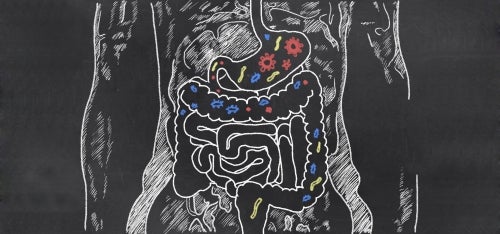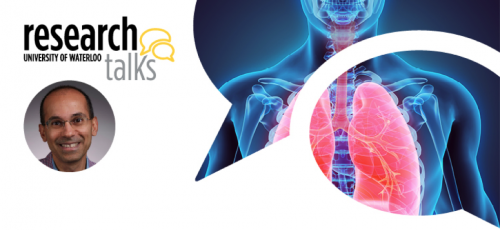The Daily Bulletin is published by Internal and Leadership Communications, part of University Communications
Contact us at bulletin@uwaterloo.ca
Submission guidelines
Editor:
Brandon Sweet
University Communications
bulletin@uwaterloo.ca
Transit in Waterloo is running as scheduled today, with a tentative deal reached early Monday morning between the Region of Waterloo and UNIFOR Local 4304 Grand River Transit/MobilityPLUS, operators, dispatchers, fleet mechanics and service attendants.
Check the Grand River Transit news site for more information.
A message from Community Relations and Events
In celebration of the University of Waterloo's teaching and research accomplishments, the President’s Reception for Excellence in Teaching and Research will be held on May 2nd in the Quantum-Nano Centre. UWaterloo would like to recognize the faculty members who contribute their knowledge and expertise to enabling student success, both academically and in our campus community.
If you would like to recognize a professor or their research, we would like to hear from you! The UW Quotes of Appreciation form is where you can express your thoughts about your favourite teacher, researcher or colleague. We would like to gain perspective on how teaching or research at UWaterloo has made a positive impact in your experience. Your response could be quoted and displayed at this year’s Teaching and Research Reception.
Have you registered for the 2017 Waterloo Staff Conference yet? There is still time before registration closes on March 27.
As part of the tenth anniversary of the Waterloo Staff Conference, a special evening event will be held with distinguished guest speaker and Canadian icon, Margaret Trudeau. Margaret brings her formidable life story to the stage in her quest to help others, sharing her message of resilience with the goal of helping to inspire others and to erase the stigma surrounding mental health issues. This event has a separate registration and seating is limited.
For the main conference days, there are still many spaces available in a variety of workshops, such as Supporting Working Caregivers, Transforming Polarized Thinking, and Neuroscience 101: Flex your brain with colour (just to name few). Be sure to read the descriptions (including for learning objectives and key themes) on all the sessions being offered this year to find the best workshops that work for you. As well, 150 seats are still open for the Choir! Choir! Choir! keynote, and many seats are still available in many of the broadcast overflow room for the other event keynotes.
Inquiries about this event can be directed to contact Mark Lisetto-Smith, Coordinator, Communications & Events, Organizational & Human Development.

A study involving Waterloo biologist Josh Neufeld and post-doctoral fellow Michael Lynch finds that bacteria in the human gut contribute to the physical and psychological symptoms of irritable bowel syndrome (IBS), paving the way for new treatments against the most common digestive illness worldwide.
The study, led by researchers from the Farncombe Family Digestive Health Research Institute at McMaster University, was published this week in the journal Science Translational Medicine.
In a series of novel experiments, the researchers wanted to see if microorganisms living in the large intestine might be causing IBS. They transferred fecal bacterial communities from human patients experiencing IBS, with and without anxiety, into healthy mice.
Surprisingly, results showed mice that received the IBS bacteria developed both the physiological and psychological symptoms of their human donors, even mirroring cases with anxiety-like behavior. According to the researchers, the microbiota living inside us are not only influencing our gastrointestinal sensitivity and transit time, but our mood as well.
Neufeld and Lynch characterized the microbial communities being transferred using DNA extraction, sequencing and 16S rRNA gene analysis.
“The key message is that gut microorganisms can contribute to IBS and this approach may be effective for investigating microbiome-level treatment options in the future,” says Neufeld, a professor in the Department of Biology and a member of the Water Institute.
IBS is the most common chronic gastrointestinal condition, affecting 10 to 15 per cent of the population globally. IBS symptoms include painful cramping, gas, diarrhea, and constipation, as well as depression and anxiety. Unfortunately, treatment options are limited because the exact root cause remains unknown.
The Canadian Institute for Health Research and Nestle Switzerland supported the study.

Interested in learning how digital X-ray technology will transform the Canadian healthcare system by detecting diseases faster, more accurately, and with less radiation?
Join Electrical and Computer Engineering Professor Karim S. Karim for the next session of Research Talks at noon on Friday, March 24.
There are a few spots remaining for this event, please register to reserve yours.
Human Resources is reporting that retiree Walter Witzke died on March 13. Walter joined the University in January 1988 and retired in May 1997 as Building Serviceperson in Plant Operations. He is survived by his spouse Elli.
Here's today's Nutrition Month "myth vs. fact" supplied by Health Services Dietician Sandra Ace:
Myth: You need to avoid all dairy products if you’re lactose intolerant.
Fact: Lactose is a sugar found in milk and milk products. It is also added to some foods and medications. People who are lactose intolerant don’t produce enough lactase, an enzyme the body makes which allows lactose to be digested and absorbed. Undigested lactose is fermented in the large intestine and causes symptoms like gas, bloating, nausea and/or diarrhea. The severity of symptoms experienced is related to the amount of lactose consumed. Using over the counter lactase tablets or drops may eliminate symptoms altogether.
Most lactose intolerant people do not need to follow a completely lactose free diet and can handle small amounts of lactose at a time. Hard cheeses contain a lot less lactose than milk, and yogurts with 'live' or 'active' bacteria may be better tolerated. There are also many lactose free products available in the supermarket dairy case – including lactose free milk, cheese and yogurt. Goat milk contains only slightly less lactose than cow’s milk, so if you try this, start with a small amount only.
If you consume fewer than two or three servings of milk or milk alternatives daily, make sure you’re getting enough calcium from other foods. If you drink a milk alternative such as soy, almond or coconut beverage, choose a calcium-fortified product.
Lactose intolerance is different than a milk allergy; someone with an allergy must completely eliminate milk and milk ingredients. If you have questions about lactose intolerance, speak with your healthcare provider and check out the tips at EatRight Ontario.
International Day of Happiness
Sustainable Campus Photo Contest, Monday, March 20 – Friday, April 21, across campus.
Management Consulting as a Career Option, Monday, March 20, 2:30 p.m., TC - William M. Tatham Centre room 2218.
Electrical and Computer Engineering Capstone Design Symposium, Tuesday, March 21, 9:30 a.m. to 4:00 p.m., DC atrium.
NEW - Career Booster German(y), a panel discussion, information fair and reception hosted by the UW Dept. of Germanic and Slavic Studies and Goethe-Institut Toronto, Tuesday, March 21, 4:00 p.m. to 6:30 p.m., Mike & Ophelia Lazaridis Quantum-Nano Centre, QNC 0101.
World Water Day, Wednesday, March 22, Wilfrid Laurier University Lazaridis Hall.
Research Opportunities with Germany, Wednesday, March 22, 10:00 a.m. to 11:00 a.m., William G. Davis Computer Research Centre (DC 1304). Please register.
Translating Academic Experience to Industry for PhDs/Postdocs, Wednesday, March 22, 10:00 a.m., TC - William M. Tatham Centre room 1208.
Exploring Your Personality Type – Myers-Briggs Type Indicator Part 2, Wednesday, March 22, 10:30 a.m., TC - William M. Tatham Centre room 1112.
WISE seminar featuring Professor Josh Taylor, Department of Electrical & Computer Engineering, University of Toronto, "Leveraging Energy Storage and Demand Response in Power System Operations," Wednesday, March 22, 10:30 a.m., EIT 3142.
Paving the way for excellent dementia care and support: A three-part education initiative: “Enhancing communication in dementia care,” Wednesday, March 22, 11:30 a.m., DC 1302.
How to be an Exceptional Employee, Wednesday, March 22, 2:30 p.m., TC - William M. Tatham Centre room 1208
Velocity Start: The Startup Rollercoaster, Wednesday, March 22, 7:30 p.m., Velocity Start, SCH 2nd Floor.
Hagey Lecture: “Memory and the Aging Brain,” featuring Carol Barnes, Wednesday, March 22, 8:00 p.m., Humanities Theatre.
Hagey Lecture Student Colloquium, "The ‘Young Field’ of Neuroscience: One senior scientist’s retrospective," with Dr. Carol Barnes, Thursday, March 23, 10:00 a.m., LHI 1620.
School of Computer Science Distinguished Lecture Series featuring Daniel Alan Spielman, “The Laplacian Matrices of Graphs: Algorithms and Applications,” Thursday, March 23, 3:30 p.m., DC 1302.
Three-Minute Thesis (3MT) finals, Thursday, March 23, 3:00 p.m., Theatre of the Arts.
Gendered Violence on Campus: Institutional Policy and Practice, Thursday, March 23, 3:30 p.m., QNC 0101.
UUfie - Recent Projects, Thursday, March 23, 6:00 p.m., Cummings Lecture Theatre, School of Architecture.
Colourful X-rays featuring Electrical and Computer Engineering Professor Karim S. Karim, Friday, March 24, 12:00 p.m. to 1:00 p.m. Please register. Seating is limited.
Knowledge Integration seminar: “Building smarter organizations”, featuring Gordon Vala-Webb, Friday, March 24, 2:30 p.m., EV3-1408.
Further Education Boot Camp, Saturday, March 25, 10:00 a.m., TC 2218.
Canadian Interdisciplinary Vision Rehabilitation Conference, Saturday, March 25 and Sunday, March 26, School of Optometry and Vision Science.
Implementing the Sustainable Development Goals: Identifying Critical Steps for Canadian Impact, featuring Dr. Jeffrey Sachs and his wife Dr. Sonia Elrich Sachs, Tuesday, March 28, 11:00 a.m., Federation Hall.
TD Walter Bean Lecture in Environment featuring Jeffrey Sachs, "Rising Nationalism versus Global Cooperation for Sustainable Development," Tuesday, March 28, 5:00 p.m., Humanities Theatre.
CBB Workshop: UWaterloo Intellectual Property Part 4 -Trademarks, Trade Secrets, Industrial Designs, Wednesday, March 29, 10:30 a.m., QNC 1501.
Beyond 60 Lecture: From Connected to Autonomous, Wednesday, March 29, 6:00 p.m., University of Waterloo Stratford Campus.
Conflicts and agreements: Canada’s foundations and their consequences, Friday March 31, 7:00 p.m. to 9:00 p.m., STC 0010. Refreshments and displays at 6:15 p.m.
Velocity Fund Finals, Thursday, March 30, 11:00 a.m., SLC Great Hall.
St. Paul's GreenHouse Social Impact Showcase, Wednesday, April 5, 4:00 p.m., Alumni Hall, St. Paul’s University College.
Faculty Association Spring General Meeting, Thursday, April 6, 12:00 p.m., QNC 1502.
French Studies. Mark Finkelstein, "La vie et les miracles de seint Edmund par Denis Piarmus: Une édition critique accompangée d'une traduction en français moderne." Supervisor, Delbert Russell. On deposit in the Arts graduate office, PAS 2428. Oral defence Tuesday, April 4, 8:30 a.m., MC 2009.
Mechanical & Mechatronics Engineering. Robert Liang, "Ti02 Nanomaterials: Photocatalysts and Multifunctional Water Treatment Applications." Supervisor, Norman Zhou. On deposit in the Engineering graduate office, SWE 3520C. Oral defence Thursday, April 6, 2:00 p.m., E5 3052.
Chemical Engineering. Shuixiu Lai, "Sorptive Separation of Phenolic Compounds from Wastewater." Supervisor, Xianshe Feng. On deposit in the Engineering graduate office, DWE 3520C. Oral defence Friday, April 7, 9:00 a.m., E6 2022.
Mechanical & Mechatronics Engineering. Christopher Kohar, "Multi-Scale Modeling and Optimization of Energy Absorption and Anisotropy in Aluminum Alloys." Supervisor, Kaan Inal. On deposit in the Engineering graduate office, DWE 3520C. Oral defence Friday, April 7, 9:30 a.m., EC4 1104.
The Daily Bulletin is published by Internal and Leadership Communications, part of University Communications
Contact us at bulletin@uwaterloo.ca
Submission guidelines
The University of Waterloo acknowledges that much of our work takes place on the traditional territory of the Neutral, Anishinaabeg, and Haudenosaunee peoples. Our main campus is situated on the Haldimand Tract, the land granted to the Six Nations that includes six miles on each side of the Grand River. Our active work toward reconciliation takes place across our campuses through research, learning, teaching, and community building, and is co-ordinated within the Office of Indigenous Relations.